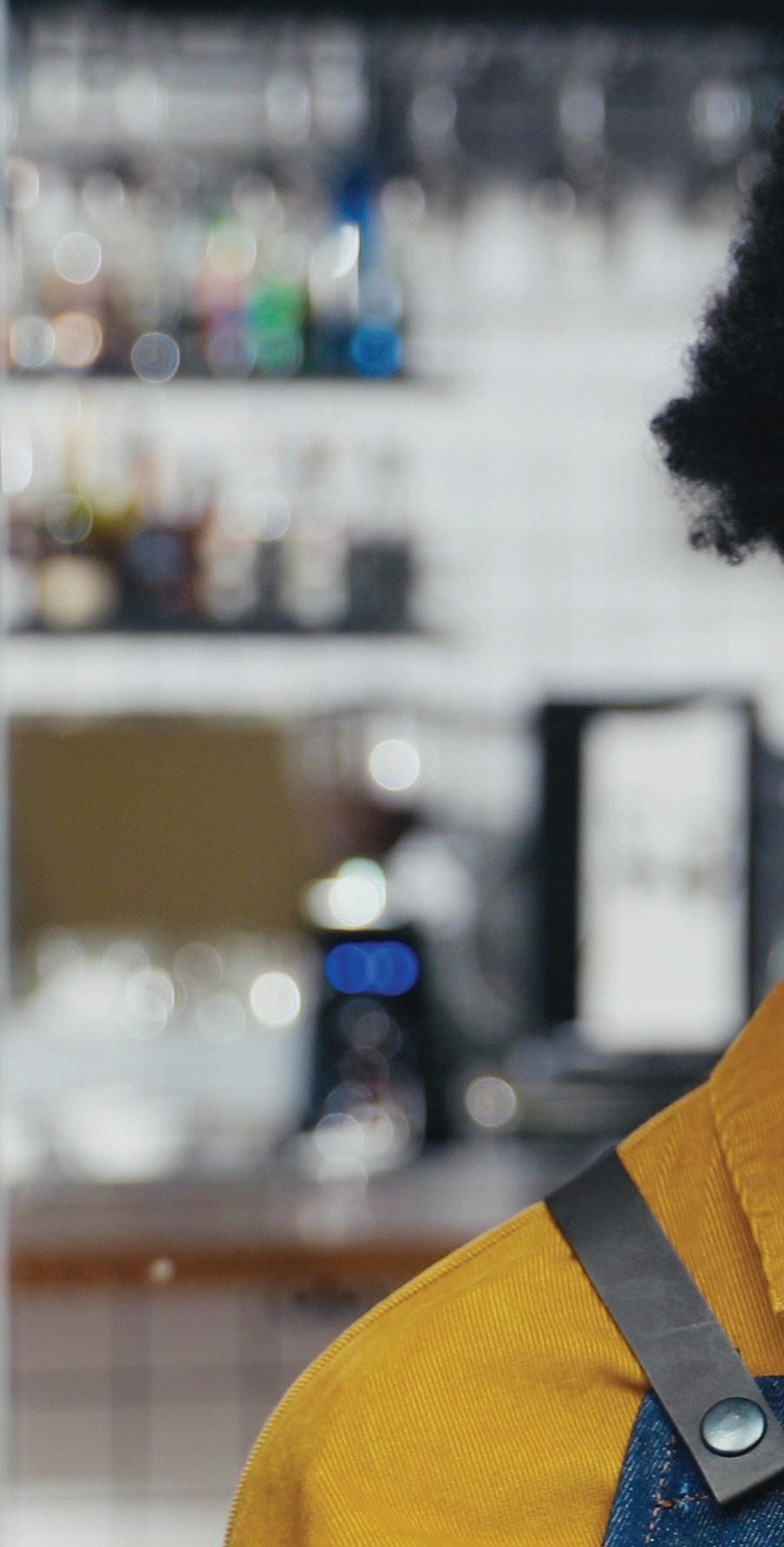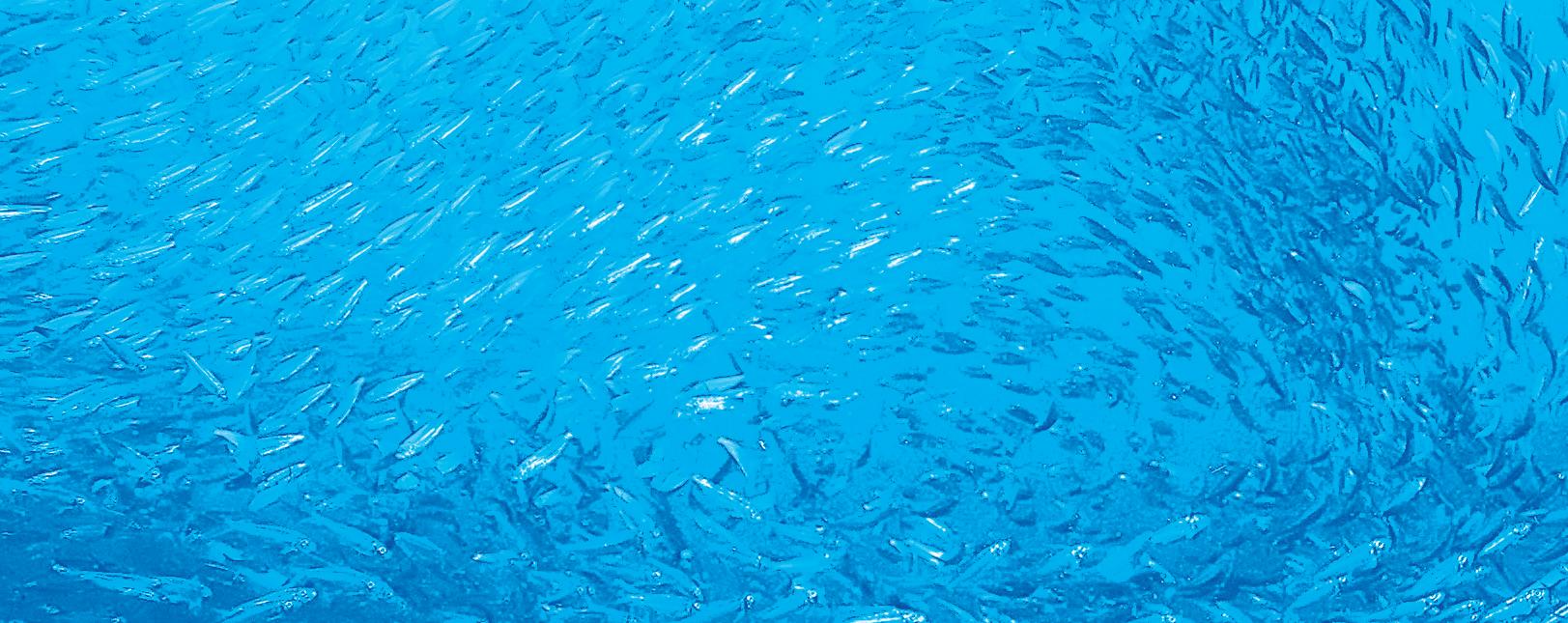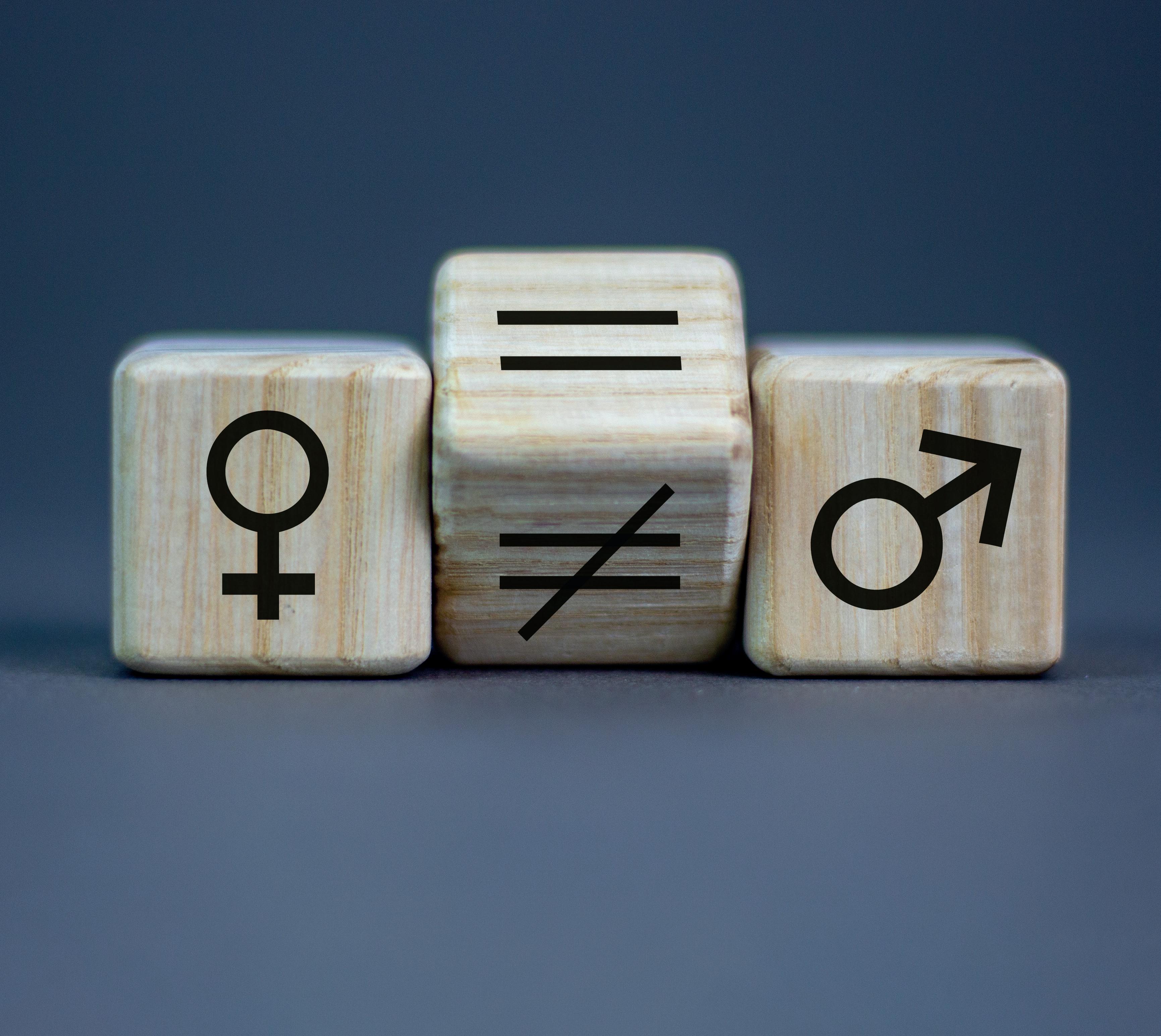8 minute read
TOURISM
Next Article
WOMEN IN TOURISM
MMAMOLOKO KUBAYI, Minister of Communications (former Minister of Tourism), says this sector has the potential to advance women’s empowerment through policies and programmes that substantially increase the meaningful participation of women in tourism
On the southern bank of the Klein Letaba River in Limpopo, lies the ancient sacred site in Baleni which tells the story of the pioneering spirit of women.
Visitors can watch local women, such as Emelia Mathebula and Maria Mkhari, using techniques dating back 2 000 years to extract salt from sand, using water and filters made from mud and wood. The filtered water is boiled to evaporation point in steel pans placed on wood fires to produce salt, which, among others, is revered for its healing properties. This ancient, slow, meticulous salt harvesting process – passed on from one generation to another – is the main attraction to the site. The two women can usually be found sitting serenely at the foot of an ancient
Motswiri or Leadwood tree, thanking their ancestors for what they consider “nature’s great gift”. A small offering in the form of money is made, and as part of a ritual by the two matriarchs, they ask their ancestors for permission to allow visitors to enter this sacred site in Baleni. The Baleni salt harvesting project is one of the six women-run tourism projects implemented by the Department of Tourism as part of the World Tourism Organization (UNWTO), Women in Tourism pilot project. The other pilot projects are Twananani Textiles, Nahakwe Lodge (as a centre for training), Mukondeni Pottery Village, Mashishimale Homestay Programme, Hihlurile Pot of Beads; all in Limpopo.
GENDER EQUALITY IN TOURISM
Like the project in Baleni, these ventures are a living testimony that tourism has an inherent potential to advance gender equality and women’s empowerment. This potential, however, needs to be harnessed through the deliberate introduction of policies and programmes that seek to substantially increase the meaningful participation of women in the sector.
According to the second edition of the UNWTO Global Report on Women in Tourism, 54% of people employed in tourism are women. The wage gap between men and women is smaller in the tourism industry, and tourism offers women more opportunities for leadership roles. The Report also states that more and more women are challenging gender stereotypes in the industry and are increasingly occupying strategic roles previously reserved for men. Technology has also been a catalyst for empowerment; lowering barriers to entry and enabling women to establish their own tourism businesses. In the words of Zurab Pololikashvili, the UNWTO Secretary-General: “Tourism is leading the charge for female empowerment all over the world. Across the private and public sectors women are harnessing the potential of tourism to become financially independent, challenge stereotypes and start their own businesses.”
It therefore comes as no surprise that policymakers, all over the world, are becoming more aware of the importance of gender equality in tourism. They are taking concrete measures to ensure that women obtain a fair share of the benefits that tourism can offer.
SA WOMEN IN TOURISM
For some time now, the South African government has been taking steps to advance gender equality and women empowerment in the tourism sector. Efforts to drive initiatives that support the development and empowerment of women in the tourism sector, have been ongoing and resulted in the 2013 launch of the Women in Tourism programme. The primary focus of this network platform is on training women in the tourism sector on personal development, providing support for women-owned tourism enterprises to develop an edge in this highly competitive industry, as well as capacity building initiatives.
One way of ensuring that this programme reaches women in all corners of the country, is through the establishment of provincial chapters in all nine provinces. The provincial chapters are responsible for driving the overall objectives of the programme – to empower women in tourism and the hospitality industry, as entrepreneurs, employees and as students – considering the specific conditions in each province. The provincial chapter are also tasked with mobilising local stakeholders, including the private sector, to support women empowerment initiatives. The ultimate goal is to ensure that women in the sector, wherever they are geographically, are represented, recognised, reaffirmed, rewarded and respected.
In addition to other gender-specific interventions, the Department convenes empowerment workshops, and collectively, these interventions are designed to offer opportunities for women tourism entrepreneurs to establish networks, enhance their business skills and leadership capabilities so they can grow and sustain their businesses.
Through the enterprise development and support programme, the department provides non-financial support and mentorship to women-owned tourism enterprises.
According to the second edition of the UNWTO Global Report on Women in Tourism, 54% of people employed in tourism are women
This programme is expected to benefit 250 women-owned tourism enterprises across the country.
The tourism sector is dominated by women at a lower level and this dominance must be reflected at all levels. It is for this reason that gender mainstreaming is central to the Tourism Sector Recovery Plan and the Tourism Policy Review. We want to pay more attention to the needs of women in all aspects of our programmes and policies so that we can create an inclusive sector. This financial year, we initiated the Tourism Technology Grassroots Innovation Incubation Programme, in partnership with the Technology Innovation Agency. It focuses on new tech-based innovation businesses in the tourism and hospitality sector, involving mainly youth start-ups. Thus far, 13 beneficiaries (10 males and three females) have been identified for this programme.
Work is underway to identify a further seven beneficiaries, and our intention is to ensure these are women and people with disabilities.
WOMEN’S MONTH
It is crucial that support be provided to all women in the sector, particularly during this challenging period of the Covid-19 pandemic, which has had a particularly devastating impact on our sector. We remain inspired by women tourism entrepreneurs who have shared stories of resilience and optimism amid a crippling pandemic.
As we commemorated International Women’s Month, on 8 March this year, all participants in the Women in Tourism programme were matched with a mentor of their choice to continue to connect and learn from them following robust engagements. It is encouraging that since that session, several provincial chapters of the Women

Funding and market information remain the two major stumbling blocks to greater participation of women in the tourism sector

in Tourism programme have held follow-up workshops. As part of this year’s National Women’s Month, we will be supporting the provincial chapters to host two-day events with a view to promoting the Meetings, Incentives, Conferences and Exhibitions (MICE) subsector and to encouraging the use of venues owned by women, as part of interventions identifi ed in the Tourism Sector Recovery Plan. It is also critical to expose women in the tourism sector to opportunities offered by the MICE subsector, so that women participation is not limited to leisure tourism but extended to this critical subsector. The provincial chapters have also been encouraged to hold women in tourism product markets to showcase and support women tourism products such as food, wine and crafts. This of course would have to take into consideration the required lockdown regulations.

STUMBLING BLOCKS TO PARTICIPATION
According to the studies conducted by the Department of Tourism, funding and market information remain the two major stumbling blocks to greater participation of women in the tourism sector. This is particularly the case in light of the Covid-19 pandemic, which has hit women-owned tourism enterprises the hardest. Government is committed to continue to provide fi nancial resources and market information aimed at assisting the revival and recovery of tourism businesses, working closely with development fi nance institutions and other government agencies. To this end, we have introduced the Tourism Transformation Fund, which is administered by the National Empowerment Fund; the Tourism Equity Fund (TEF) administered by the Small Enterprise Finance Agency (Sefa); and the Green Tourism Incentive Programme (GTIP) administered by the Industrial Development Corporation (IDC) to stimulate funding for tourism businesses. Like the project in Baleni, we recognise that the tourism sector has an inherent potential to advance women’s empowerment. Through the Department of Tourism, we are working towards harnessing the energies of women through the meaningful participation of women in the tourism economy.

MMAMOLOKO KUBAYI
MINISTER OF COMMUNICATIONS (FORMER MINISTER OF TOURISM),
Money does not grow on trees, but in competent hands.
WHAT WE OFFER
Mogale Auctioneers assist lost adjusters in various asset & salvage management, goods in transit, water & smoke damaged goods.
We help liquidators, attorneys, insolvency practitioners & financial institutions with the disposal of movable assets such as mining equipment, yellow metals, trucks, trailers, vehicles or any other loose assets.
50 000m² of safe secure storage & filing facilities for financial institutions. These facilities are monitored 24hours inside & outside the premises. Our aim is to ensure all our client's needs are met under one roof to ensure convenient & cost-effective selling & storage of their assets.
Auctioneering is a cost-effective way to avoid complicated implications in liquidations. We offer tailor made plans to be formulated & implemented in conjunction with all relevant parties involved. 1 Engelbrecht str, Krugersdorp (011) 660-3254 | 082 550 3265 | 083 601 0913 Sales@mogaleauctioneers.co.za Philip@mogaleauctioneers.co.za www.mogaleauctioneers.co.za












